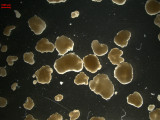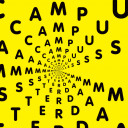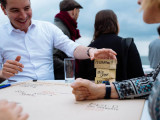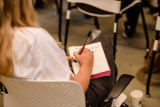Stay in the know on all smart updates of your favorite topics.
Moving from a linear to a circular economy means minimising the waste and pollution by reducing, recycling and reusing. The City of Amsterdam aims to redesign twenty product- or material chains. The implementation of material reuse strategies has the potential to create a value of €85 million per year within the construction sector and €150 million per year with more efficient organic residual streams. Amsterdam set up an innovation program on the circular economy; www.amsterdamsmartcity.com/circularamsterdam. By converting waste into electricity, urban heating and construction materials, the Amsterdam Electricity Company generates 900 kWh per 1000 kg of waste. 75% of the sewage system is separated for waste and rain water and the silt which remains after treating waste water is converted into natural gas. Share your innovative concepts and ideas on circular economy here.
Zero Waste Management – Transforming Cities Into Smart Cities
Take a pause from your busy life and look at our planet’s incredible sustainable natural cycle. Have you ever given a thought that our planet wouldn’t have lived billions of years without this natural cycle where the excretion of one living species tends to be another’s food – a natural zero waste management system.
In korte tijd jouw circulaire business(idee) boosten?
In oktober start het GO!-NH Accelerator Programma 'Circulaire Economie' met trainingen, tools en professionele ondersteuning om jouw business te boosten. Doe mee als je toe bent aan de 'next level'.
Tegelijkertijd starten ook de Challenge Energie en Ruimte Haarlemmermeer en de Techport Challenge Circulaire Economie.
Meer weten? Kom op 4 september as naar de informatiebijeenkomst bij de Provincie Noord-Holland.
Schrijf je uiterlijk 11 september 2018 in op https://go-nh.nl/inschrijfformulier/.
Small scale Waste Transformer | Organic waste into value on your own site

A Waste Transformer is a small-scale anaerobic digester which organisations place on their own site, transforming their own organic waste into green energy (biogas, electricity, heat) and fertilizer. A circular economy around your own waste streams.
A Waste Transformer is the perfect solution for organisations which produce between 600KG and 3600KG of organic waste per day. Normally waste is a cost, with a Waste Transformer it becomes a source of positive (financial) change. It is a high tech installation, but with low tech daily usability. This Waste Transformer in Amsterdam, transforms the organic waste from 10 restaurants, a hotel and micro brewery into green energy. The fertilizer is given back to the park, and the energy created turning the lights on in the restaurants.
A Waste Transformer is suitable in many situations, worldwide. It provides jobs for people with a distance to the labour market, it reduces greatly your waste handling costs, and it creates green energy and fertilizer. Then we have not even discussed the positive stories each Waste Transformer owner can share with their clients and stakeholders.
Upcycling waste, on your own premises.
By the way. A Waste Transformer is a closed systems, which means you don't smell it once it is inside the Transformer. Good energy!
AMS Science for the City #10 - From water, to waste, to product

The next step of water recycling: how to upcycle waste-water into useable material?
On a daily basis, we use 130-160L water per house hold in the Netherlands. In order to clean and re-use this water in a sustainable way, our waste-water streams are being recycled in so called waste-water treatment plants. However, the waste streams of these treatment plants are still being digested or incinerated. In order to fully close the circular loop of our water management, we need to turn these waste streams into useable products. Researchers from AMS Institute and TU Delft will take us into the world of upcycling valuable raw materials, such as bio-composite and plastics from waste-water streams. What can we create from waste-water; and are citizens ready for such extensive upcycling processes: would you be willing to use a disposable fork or medicine made from waste streams?
With amongst others:
- Peter Mooij | Wetenschapper en algenexpert
- Wouter de Buck | Advisor Watertechnology, Arcadis
Peter Mooij (1985) finished his PhD on Lipid and sugar production by mixed cultures of microalgae at the Delft University in 2015. He wrote a popular science book on how algae will save the world, was blogger for the Faces of Science program of the Royal Netherlands Academy of Arts and Sciences, gave a talk at TEDxDelft and presented his research on national TV and radio.
In his research, Peter focusses on creating a composite material from two municipal waste-streams. Two municipal waste-streams can be transformed in a nature-based composite, which on its turn can be used to produce park benches, bike parts or any other composite product. For the city this translates to the upcycling of two waste streams and a smaller dependency on fossil resources.
Wouter de Buck is advisor Watertechnology at Arcadis and main coordinator at The Nutrient Platform, a cross-sectoral network of Dutch organizations from the water sector, agriculture, waste sector and chemical industry that have joined forces to close nutrient cycles. The Nutrient Platform aims to turn the surplus of phosphorus from ‘waste’ streams (wastewater, sludge, manure, swill) in the Netherlands and recycled them into valuable new products (fertilizers, animal feed, chemicals).
Re-store

In the research project Re-store knowledge is developed how to assess the impact of solutions to process organic waste. What indicators are most important and how will it be possible to measure those.
In order to ensure that there is enough food, materials and energy for everyone in 2050, our economy must become circular. There is no more waste in a circular economy - waste is raw material. Based on this vision, the AUAS works on knowledge development about circular products and processes. The Re-Organize project investigated how organic waste in urban agriculture areas can be reused locally using new solutions. Examples include local bio-fermentation, composting and insect breeding. The new Re-StORe project will extend the scope of urban agriculture research into the built environment.
Would you like to know more about the project or would you like to get involved, please contact Maarten Mulder, projectmanager of Re-store, m.mulder3@hva.nl
Unpack Impact | Amsterdam Capital Week

Join us during Amsterdam Capital Week to explore the ins & outs of startup-investor partnerships and how business contributes to positive change.
Entrepreneur-investor duos making impact in ethical fashion, healthy food, circular economy and inclusion will share how they built strong partnerships and what they learned along the way. We are pleased to be joined by NORMN Hangers & Fashion for Good, Rotterzwam & Stichting DOEN, GoodHout & their angel investor and one other duo (stay tuned for the announcement)!
A keynote by world-renowned speaker Christian Felber, founder of the Economy for the Common Good (ECG) movement, will challenge us to think about how our economy contributes to problems ranging from environmental degradation to inequality. Felber will also inspire us to build an economy for the common good – a more ethical economic model that serves the well-being of people and planet. Since its launch, the ECG’s framework has gained the support of over 2,200 companies across 50 countries, as well as the EU’s Economic and Social Committee.
WHY ATTEND UNPACK IMPACT
By bringing together impact enterprises, impact-driven investors and social firms, we strive to connect, encourage and stimulate conscious capital, as well as build collaborations to solve local and global challenges.
AN EVENT DURING AMSTERDAM CAPITAL WEEK
The event is organised in affiliation with Amsterdam Capital Week. Unpack Impact is a co-creation between the Municipality of Amsterdam – Amsterdam Impact – and Impact Hub Amsterdam.
Voor ondernemers - Call to Action! VNG
Heb jij een idee over de aanpak van afvalstromen? Een circulair plan dat nog niet van de grond komt? Of een concept dat de transitie naar duurzame energie versnelt? Dan zoekt de VNG jou!
Global Goals for Sustainable Development (SDG’s), grondstoffen- en klimaatakkoorden; dagelijks lezen we over alle ambities rondom duurzaamheid. Nederlandse gemeenten, ondersteund door VNG’s Gemeenten4GlobalGoals campagne, staan voor een enorme uitdaging om de duurzame ontwikkelingsdoelstellingen te behalen. Tegelijkertijd start 1/3 van alle nieuwe ondernemingen vanuit een sociale of ecologische missie. Maar deze ondernemingen merken vaak dat de financiering van hun ideeën lastig is, wat de schaal en impact beperkt. Met deze challenge brengen BNG Bank & VNG gemeenten ondernemers en financiering bij elkaar!
Daarom zijn BNG Bank en VNG op zoek naar financierbare ideeën rondom energietransitie, afval en circulaire economie om zo veel mogelijk impact te maken, met name op Global Goal 12: ‘verantwoorde consumptie & productie’.
Kijk voor meer informatie op de website https://vng.nl/voor-ondernemers-call-to-action.
Circular Organic Waste in Amsterdam Questionnaire
The project Circular Organic Waste in Amsterdam wants to investigate on the potential of separate collection and treatment of organic waste in improving Amsterdam's circularity. To get data on the social perception on this issue from Amsterdam’s inhabitants a questionnaire has been created. If you live in Amsterdam, answer the questionnaire, you will help the research and you will also get the opportunity of winning a prize! It will take less that 5 minutes! You can access the questionnaire through the link below:
Circular Organic Waste in Amsterdam

Circular Organic Waste in Amsterdam is a thesis project carried out in a collaboration between the UvA Faculty of Science, the Amsterdam Business School and the Van ’t Hoff Institute for Molecular Sciences (Research Priority Area Sustainable Chemistry)The aim of the project is to investigate on the potential of separate organic waste collection and treatment in improving the circularity of Amsterdam. Amsterdam wants to become a sustainable and circular city by 2050 and increase recycling to 65% of waste by 2020 (currently around 27%). In addition, in April 2018, the European Parliament has adopted the revised Waste Framework Directive which declares that all member states shall ensure that biowaste is separately collected by 2023. Therefore it is clear that the separate collection of organic waste represents both an opportunity for the city to get closer to its targets and a necessity.
Currently, organic waste is not separately collected and it is just incinerated with the residual waste. In this way, energy is produced but all the nutrients and organic matter are lost and so all the value. Other treatments, more specific for organic waste, could allow for the recycling of nutrients, the retention of the value and even the upcycling of some materials. However, the introduction of another waste stream separately collected raises organizational, logistic and transportation issues. Therefore, this research aims at analyzing various potential collection solutions that could minimize costs and environmental impact making feasible and convenient the separate collection of organic waste and different possible treatments for this waste stream.
The analysis will be based on interviews, case studies and literatures and will be performed from different perspectives in order to have a systemic vision. Parallelly also the city of Amsterdam and its different sub-environments will be analyzed in order to understand the specific needs, limitation and opportunities of each different area. Combining the results, the most successful case studies that fit best in the characteristics of the city will be selected and integrated in different sustainable business models.
The set of business models proposed will produce an overall strategy for the management of organic waste following the principles of sustainability and circular economy as much as possible.
At the same time, the research will be backed by a social analysis performed through a questionnaire in order to get data on the real perception about this issue among Amsterdam’s inhabitants. The questionnaire will also help to get data on what would be the best instruments to incentivise the separate collection of organic waste and what the biggest barriers to its realisation are.
You can access the questionnaire through this link:
Campus Amsterdam | Marineterrein

Amsterdam is where the world discovers new solutions for global challenges.
Campus Amsterdam connects all campuses, labs and innovation districts in the Amsterdam metropolitan area, to provide entrepreneurs, researchers and students around the world with one entrance to the region's wealth of innovation, knowledge and education.
Come to our meetup to open the door to various new innovative partners, organisations, startups. Meet inspiring people and create new long-term relationships to tackle the Sustainable Development Goals
Using machine learning algorithms to optimize solar products
Machine learning can be applied on a wide variety of purposes, due to the ability of this technology to improve products and autonomy. The use of machine learning in solar technology is however not common, but has proven to be very valuable.
One of the applications of these tools is to predict how much solar energy can be captured at a specific location, in order for the solar product to function optimally. In this way, the product can be configured and optimized according to the needs of each client. Predicting the amount of generated solar energy is not easy, since solar irradiation varies a lot all over the globe and is subjected to local climates. These effects can be analysed and products can be optimised accordingly, by making use of dedicated machine learning algorithms.
Continue reading here:
Circulair inkopen: hoe KPN het doet
Circulair is de wereld waarin alles eindeloos opnieuw gebruikt kan worden. Elk einde is een nieuw begin. Om naar die wereld te komen is inkopen een beslissend moment, het moment waar je het verschil kunt maken. Door circulair inkopen bepaal je wat je aanschaft, hoe en waarvan het gemaakt is, dat het weer uit elkaar gehaald kan worden, en dat het deel kan blijven van de keten. Veel partijen gingen je al voor. Gemeentes, bedrijven en kennisinstellingen. Zo ook KPN.
Amsterdam region aims for 50% Circular Public Procurement in 2025

Last month, 32 municipalities, 2 provinces and the Vervoerregio (the regional transport authority) in the Amsterdam Metropolitan Area committed to work towards making 50% of their procurement activities fully circular in 2025.
This ambition will be fulfilled with an action plan, assembled by the regional coordinator of resource streams.
The commitment is a valuable step in achieving the region's circular economy goals. In the EU, public procurement spending is around 14% of the EU GDP, so converting a considerable part of this spending to investments in the circular economy will accelerate the transition towards a circular region.
Challenge for the Brainport Smart District Business Network
The city of Helmond is looking for innovative companies willing to participate in the development of the Brainport Smart District, a testing ground for tomorrow's society.
For more info check the post on BABLE: http://ow.ly/XElh30kXYig
Deadline extended until the 23rd of July!
Huge circular economy opportunities for Rotterdam
Metabolic recently helped produce a report on what Rotterdam could gain from a circular economy. Among other things, we found the city’s construction sector could harness the waste it generates in one year to build the equivalent of 38 Erasmus Bridges! How many bridges over the Amstel could Amsterdam construct with its waste?
Johan Cruijf ArenA broedplaats voor duurzame innovatie
Op 29 juni nam de Johan Cruijff ArenA een superbatterij in gebruik, gemaakt van accu’s van elektrische auto’s. De batterij van 3 megawatt dient als reserve-opslag van de energie die wordt gewonnen uit 7200 vierkante meter zonnepanelen. De batterij is slechts één voorbeeld van hoe het stadion dient als living lab voor innovatieve en duurzame oplossingen. Directeur Henk Markerink vertelt over de verschillende thema’s waar de Johan Cruijff ArenA de komende jaren op inzet.
What is (not) digital social innovation?

Over the last ten years, a growing international movement of practitioners, policy makers, activists and researchers has been coming together to propose a concrete and radically different vision for how technologies could help shape our common future.
These people believe that technology should contribute to the common good, rather than just delivering huge profits to a handful of giant tech corporations. They want to use the opportunities offered by digitalisation to address societal challenges such as environmental devastation, and to build alternative economic and political models. We call this movement "digital social innovation" (DSI).
At first glance, however, it might not be easy to detect how the movement’s conception of "social innovation" is radically different from the one hyped by many tech gurus and political consultants to actually mean more business as usual, with a touch of tech on top. As the DSI field is growing in size and, healthily, diversity, and beginning to enter the mainstream of public and policy consciousness, there is a real need to take stock of what its core principles actually are.
When should we really be speaking about DSI? And what falls outside the realms of DSI?
The recent Manifesto for Digital Social Innovation (2017), published last year, has begun to answer this question by compiling a succinct list of the core values of DSI
Continue reading here >> https://waag.org/en/article/what-not-digital-social-innovation
(Authors: Valeria Graziano, with Zoe Romano and Serena Cangiano (WeMake).)
USA school teacher: opportunities to learn about Dutch climate mitigation/adaptation strategies Jun28-July7
Hello! I'm hoping (at the very last minute) to connect with some folks who might be interested in sharing their work with me through a brief informal tour or interview while I'm here in the Netherlands for the next 8 or 9 days. I'm here with the help of a small, self directed grant to develop a unit of study for my students in Chicago that will inspire them to better understand climate change as a global issue with which they can engage in creative ways in their local context. I'm interested in more or less any and all work happening around Amsterdam (or Utrecht, where I'll be from July 3-July 5, or Wageningen, July 5- July 7) that relates to the effects of climate change or mitigation/adaptation strategies. This could include any climate relevant public or private work in the electricity, transportation, building, industrial, agricultural, tech, or education sectors. For example, if you are involved with a start up that does circular economy work that reduces emissions, have a perspective to share on regional transportation, know something about zero emission architecture, or work in education and are interested in developing collaborations in terms of sustainability/climate curriculum, I'm interested in hearing from you and (in an ideal world) chatting for 30 minutes or an hour. My students are typically low income, racial minority teenagers who I believe need to be empowered to make the future as much as their economically well off and culturally "mainstream" peers. Most of my students are also soon to be voting eligible citizens of the USA, which seems relevant. Anyway, I appreciate you considering my vague request! I am of course thrilled about the wealth of resources available through Smart City Amsterdam (including the very cool new Amsterdam Innovation Tour app), and I've booked, for example, a standard tour on Friday through architour. But unfortunately my dates of travel did not align with WeMakeTheCity, the ASC Open House is not happening this Friday, and many of the other tour options are out of my price range as an individual traveling on a small grant. Thanks for any and all input. Cheers!
Contract Law for Startups

WHY JOIN?
This workbench will cover key issues in Contract Law as relevant for social entrepreneurs. Such as: Contractual liability in services and sales contracts and excluding/limiting liability in such contracts | Letters of intent | Structuring partnership agreements (best practice) | Principles for business to business contracts and co-founder agreements.
WHO IS THIS FOR?
The target audience is startups that are moving from start to growth.
ABOUT YOUR TRAINER
This workbench will be given by Jasper de Blok, from global law firm DLA Piper.
MORE ABOUT OUR WORKBENCH SERIES
Our monthly Workbench series of workshops, which takes place every first Thursday of the month, is for impact entrepreneurs who want to take their start-up to the next level. Each Workbench tackles one of six regularly rotating topics: legal advice, marketing & sales, finance & funding, organisational culture & structure, sustainable operations, and impact measurement.
If you’re getting your start-up ready for takeoff, sign up for our basic-level workbenches. And if you’re already working hard on scaling your venture, join our advanced-level sessions.
Each basic- or advanced-level Workbench consists of a mini masterclass, while the advanced editions also include individual sparring sessions with experts.
Apply now to win a mentoring session with Prof. Walter R. Stahel!

The Circular Economy Club has teamed up with Prof. Walter R. Stahel in a #CECMentors opportunity. If you get to be the winner of this exclusive opportunity, Prof. Stahel will be able to point you in the right direction, helping you to tackle specific circular-related challenges in a 40 minute-long video-conference mentoring session.
Considered one of the fathers of the circular economy movement, Prof. Walter R Stahel is a full member of the Club of Rome. Credited with having coined the expression “Cradle to Cradle” in the late 1970s and developed the Performance Economy approach, Stahel worked at developing a “closed loop” approach to production processes and founded The Product Life Institute in Geneva in 1983.
For more information, please visit the website: https://www.circulareconomyclub.com/cec-mentors-program/
Stay up to date
Get notified about new updates, opportunities or events that match your interests.

